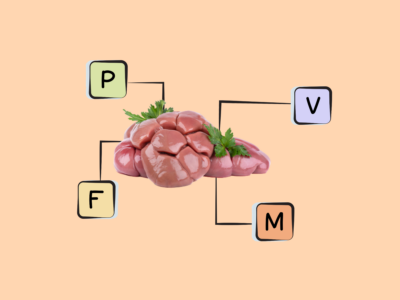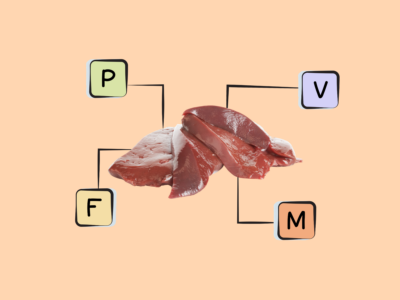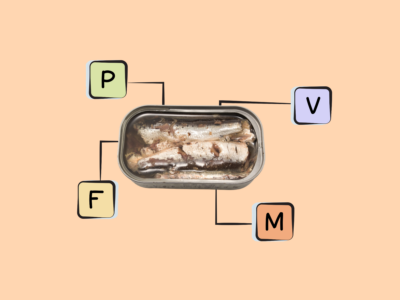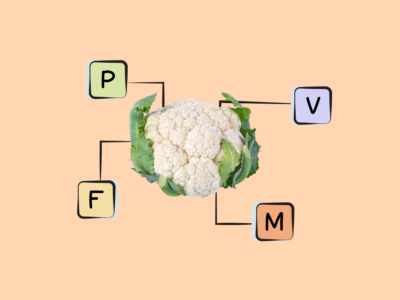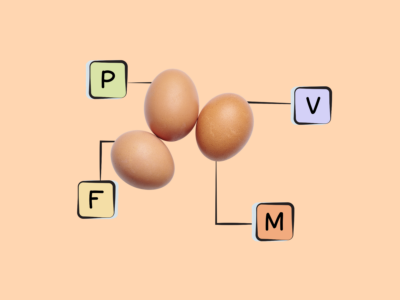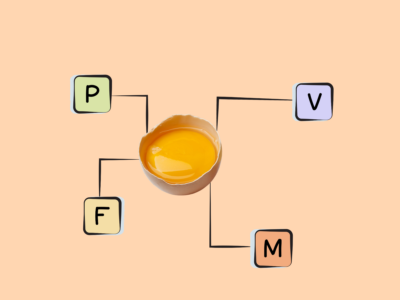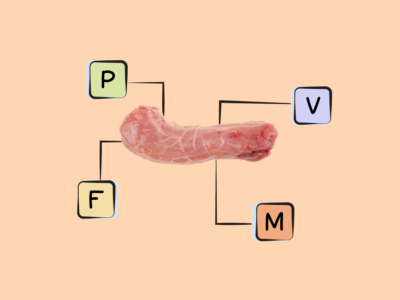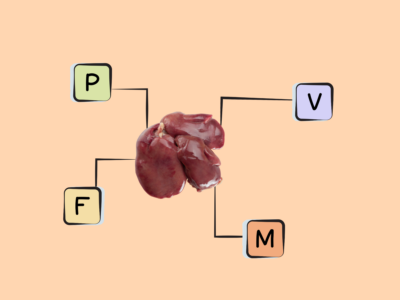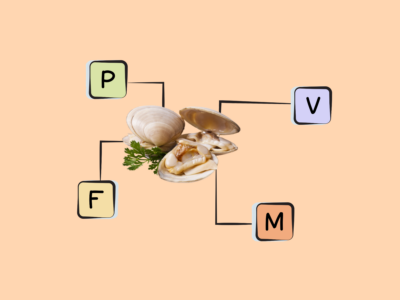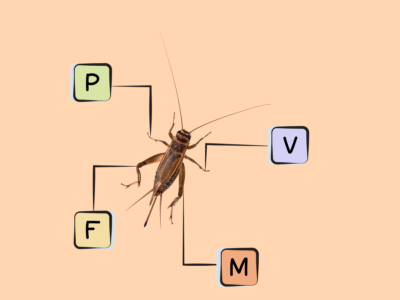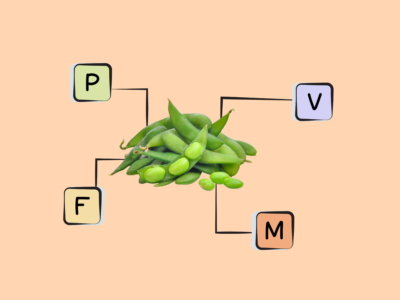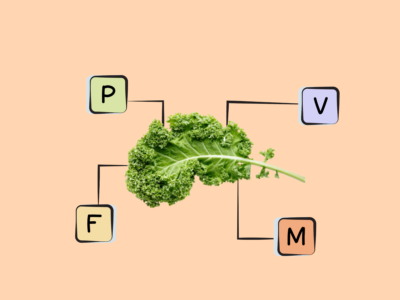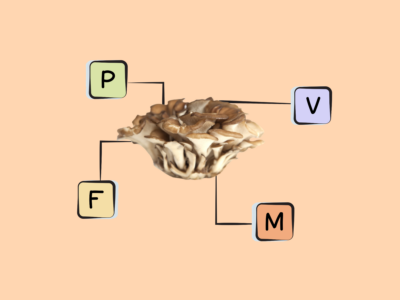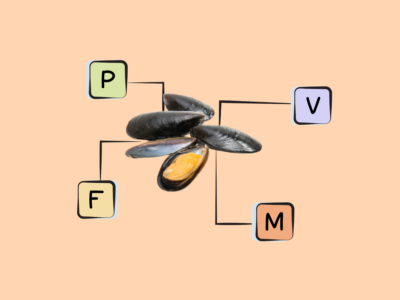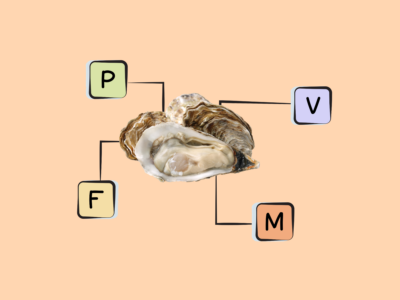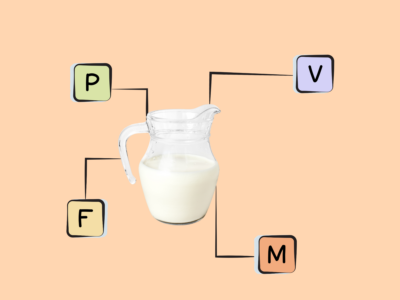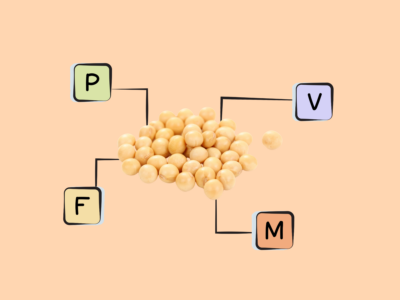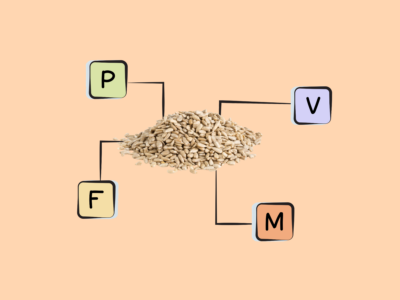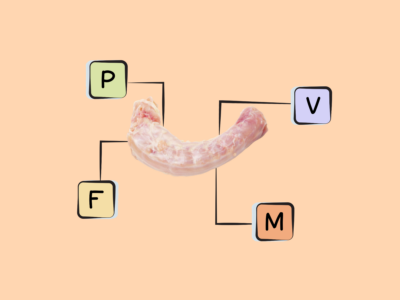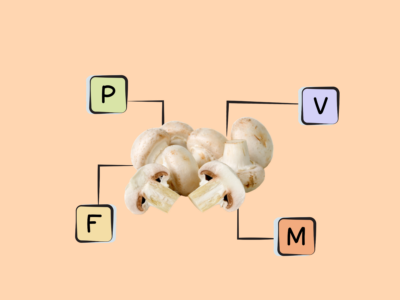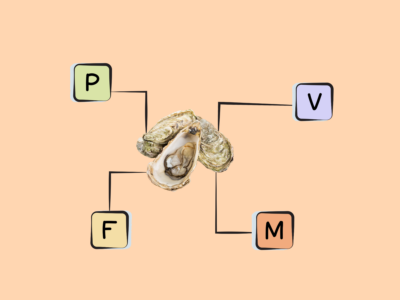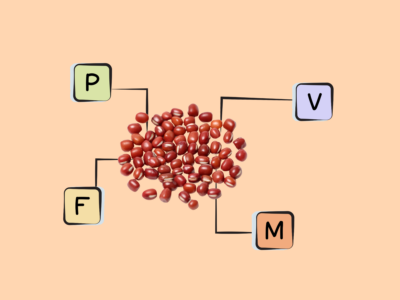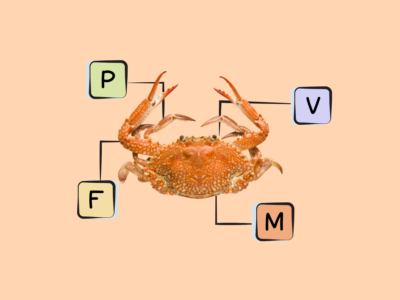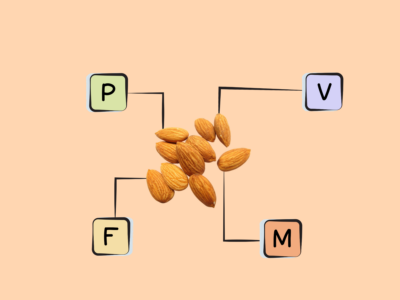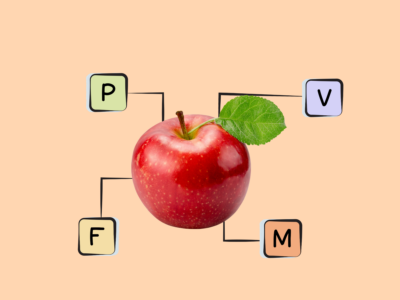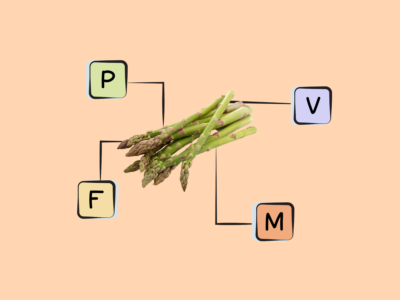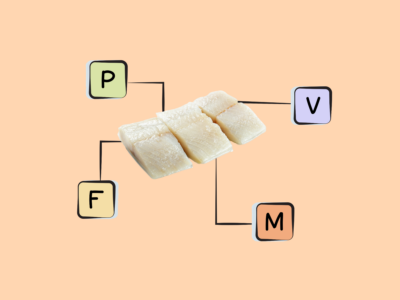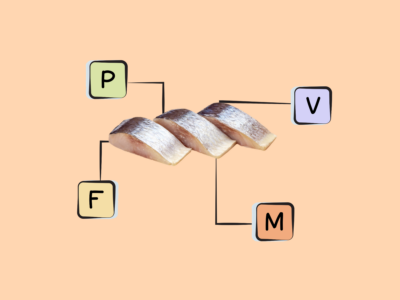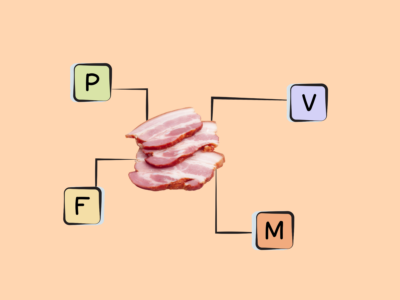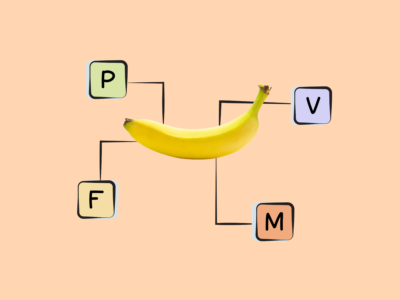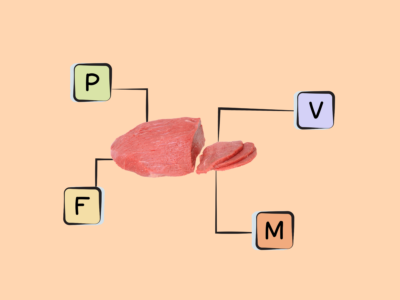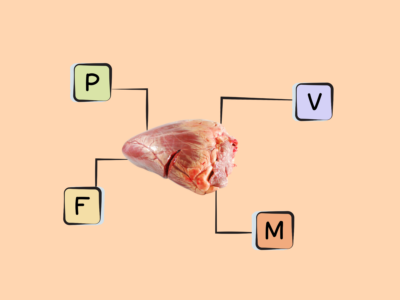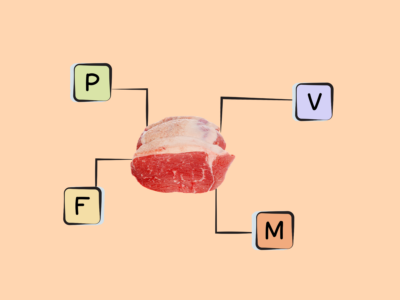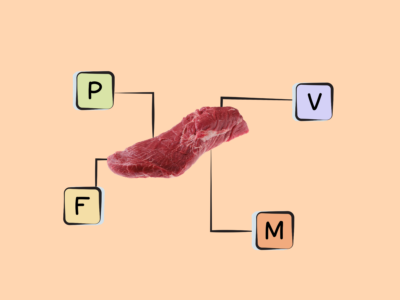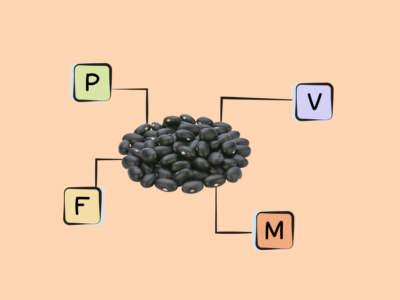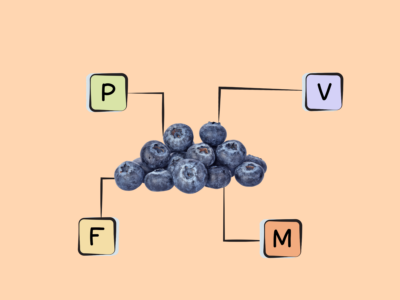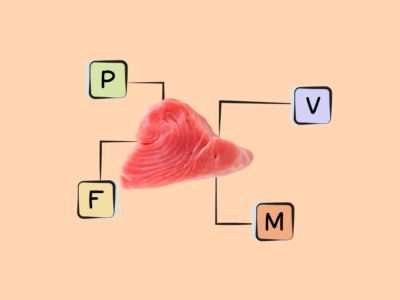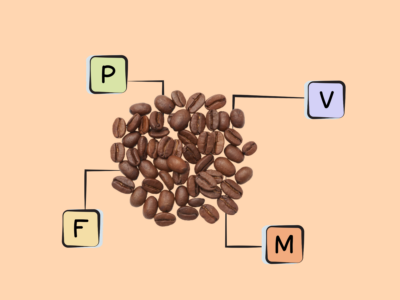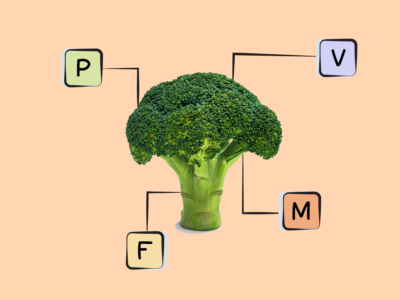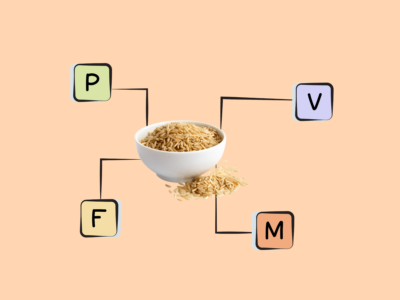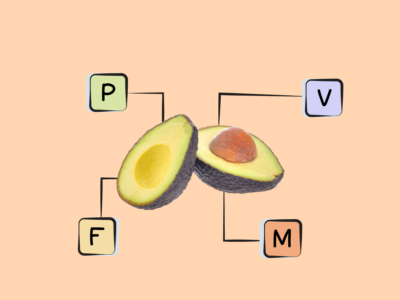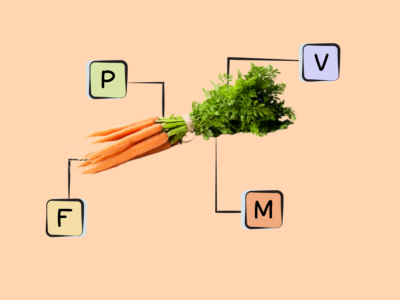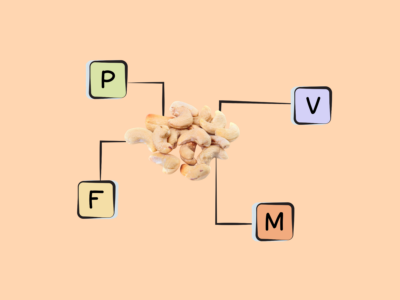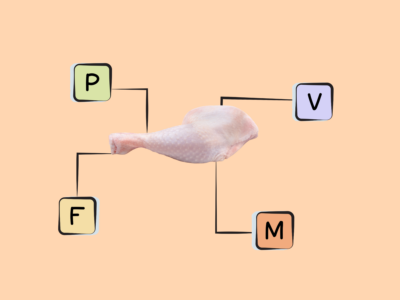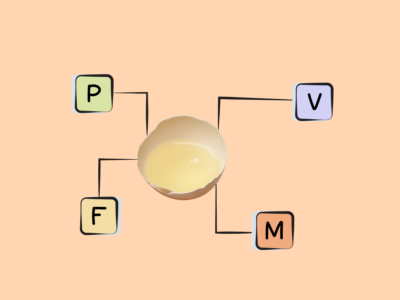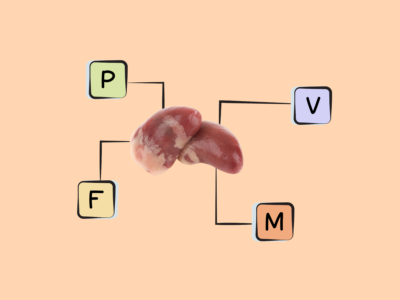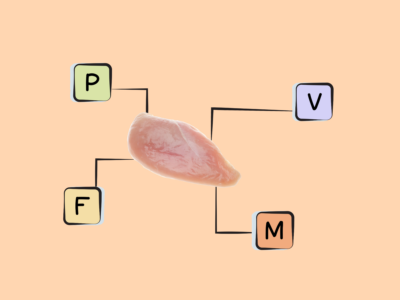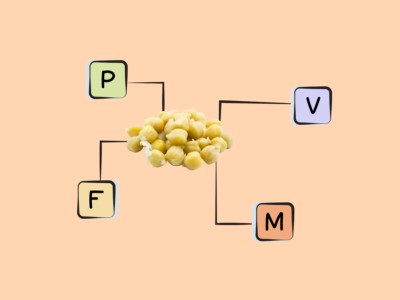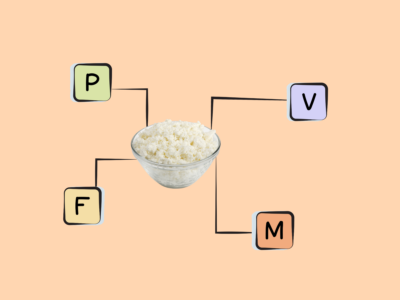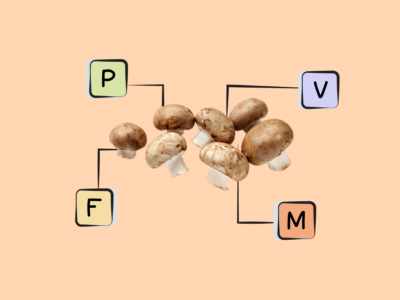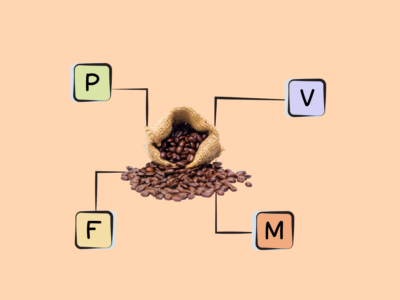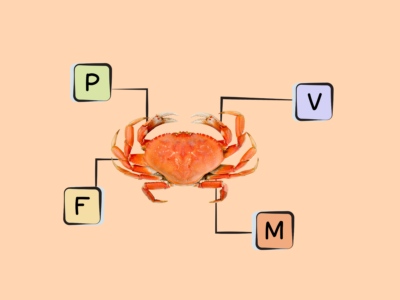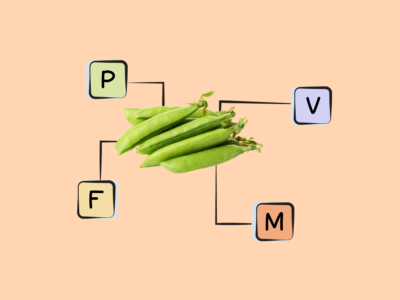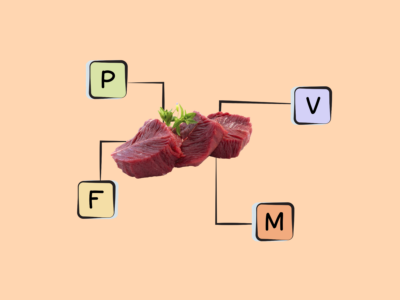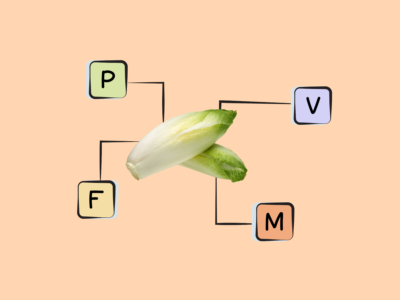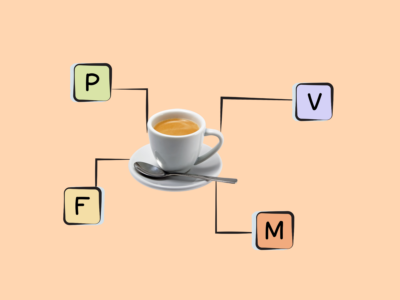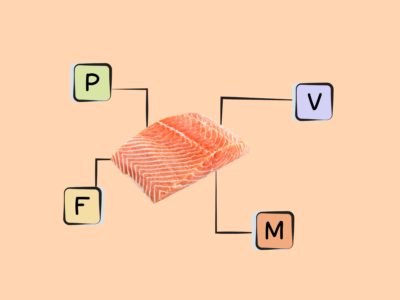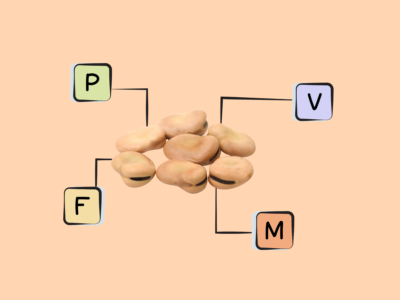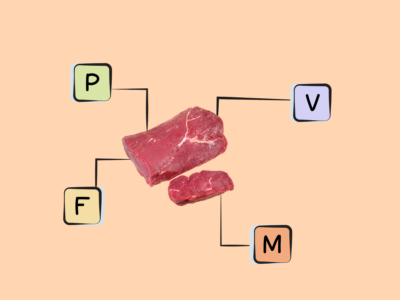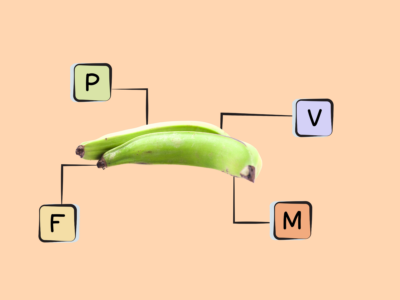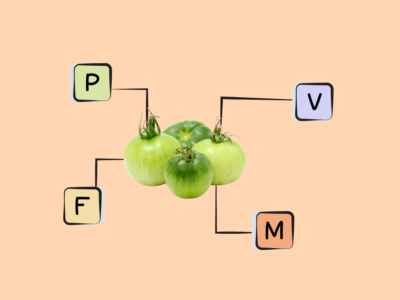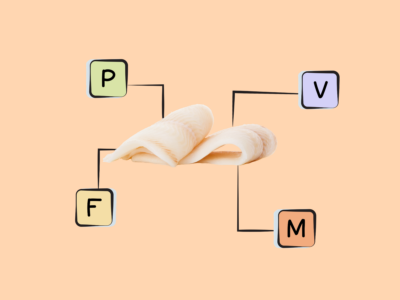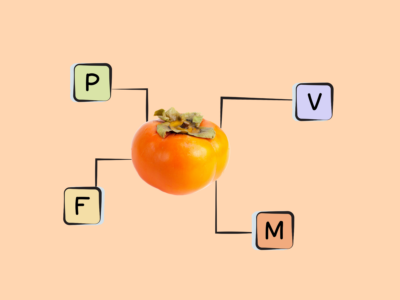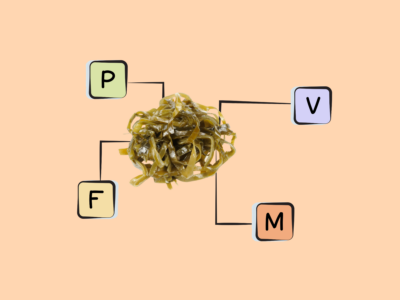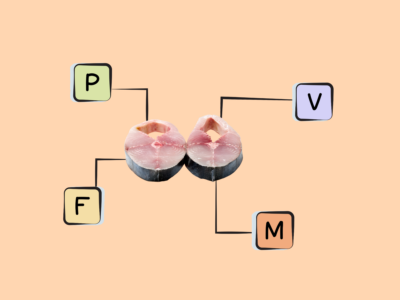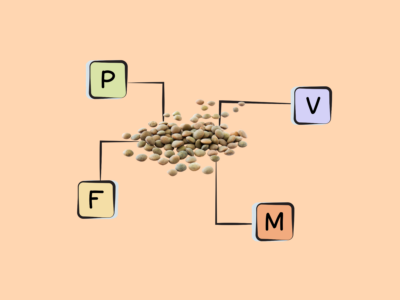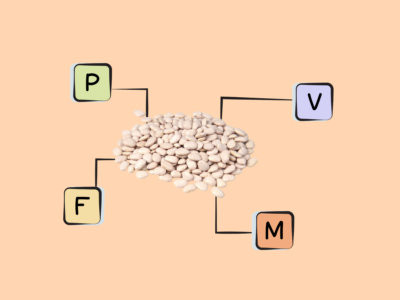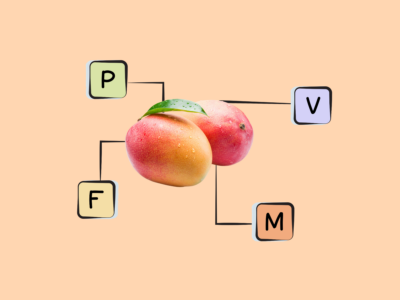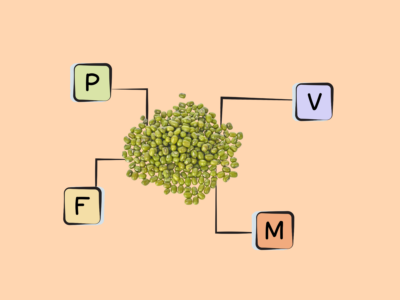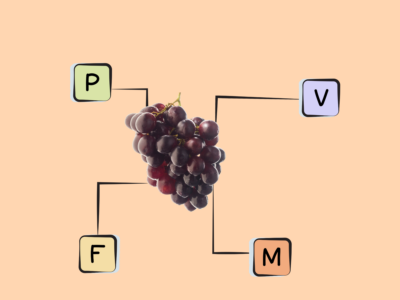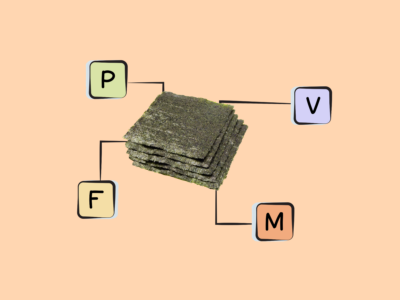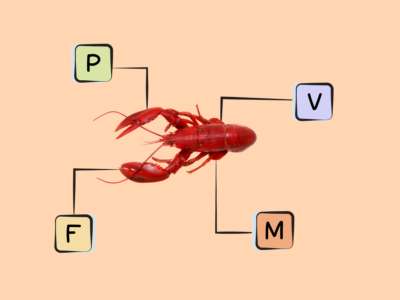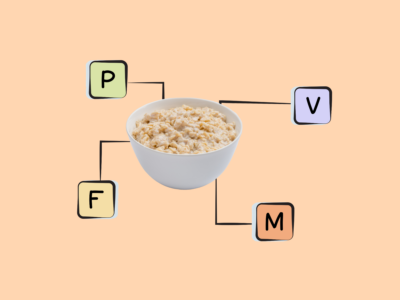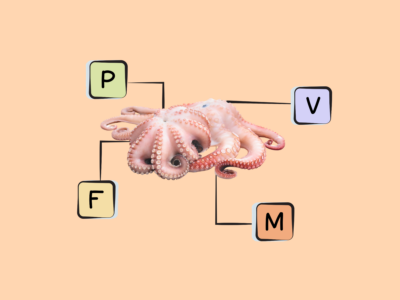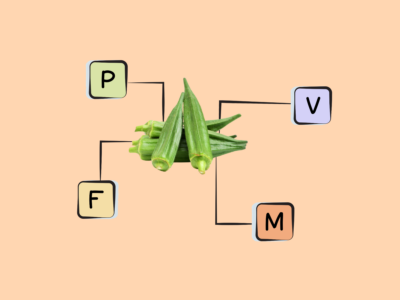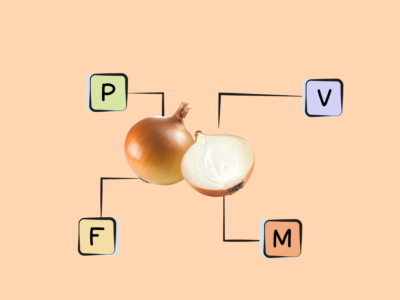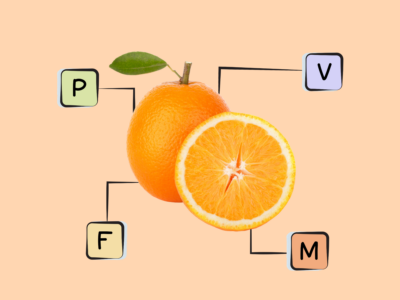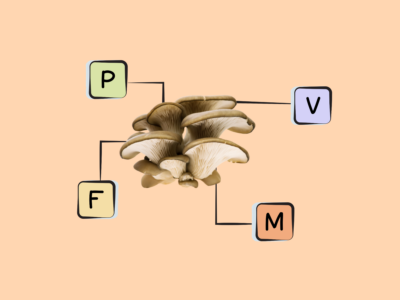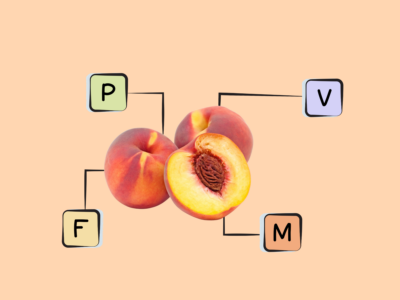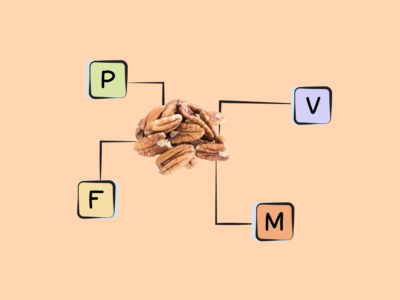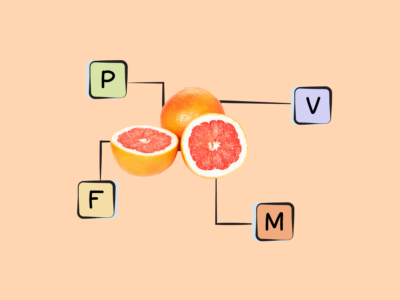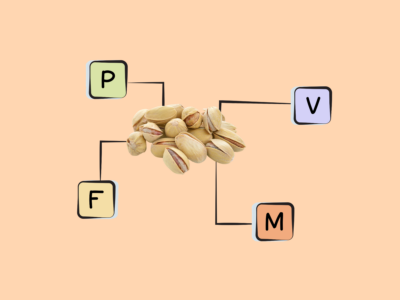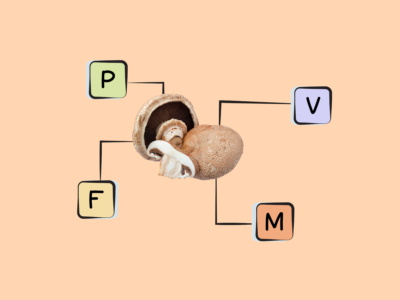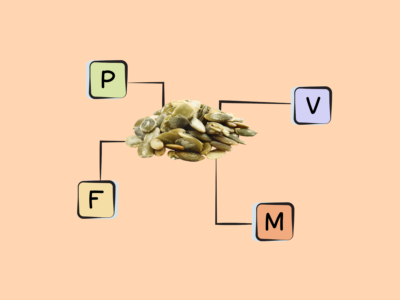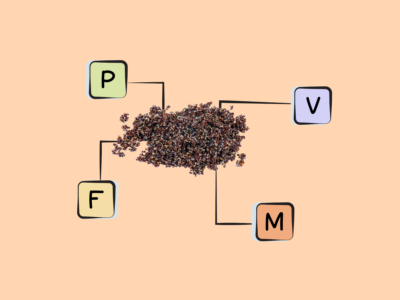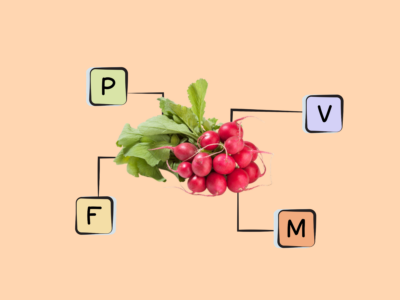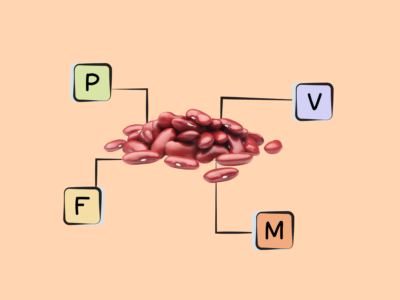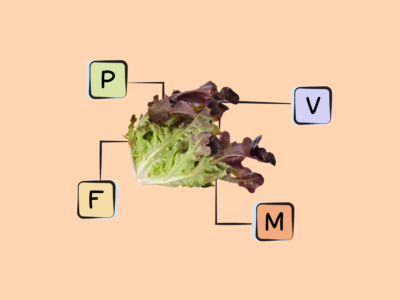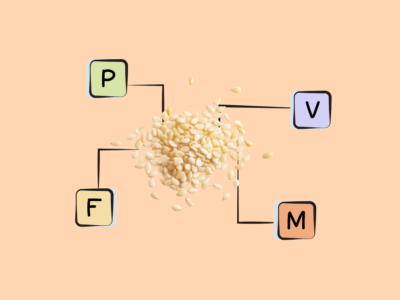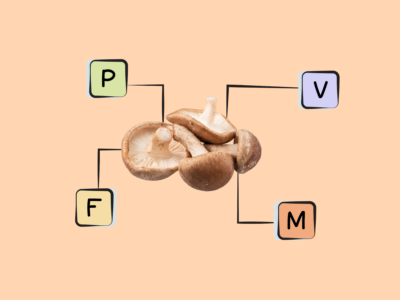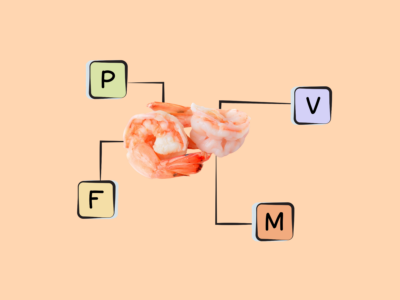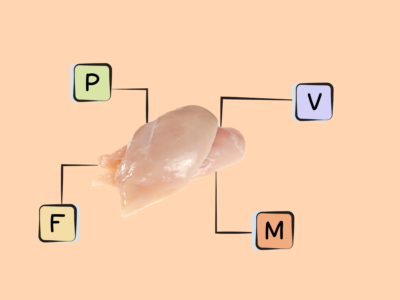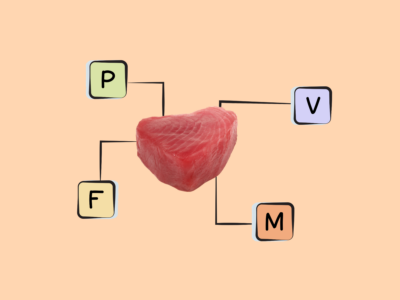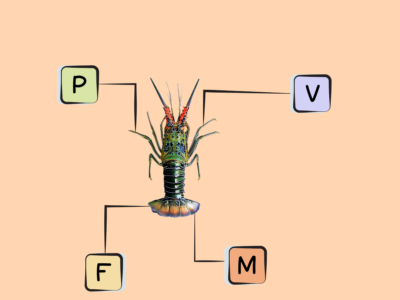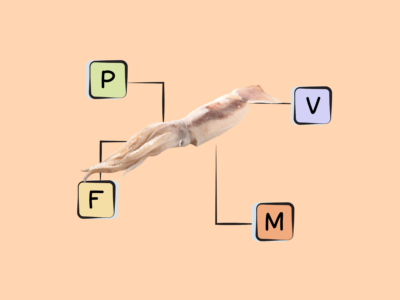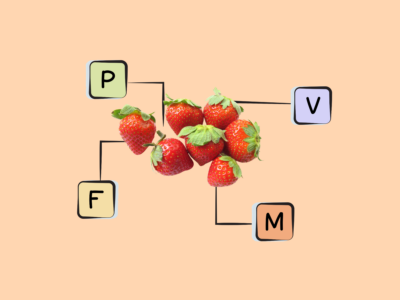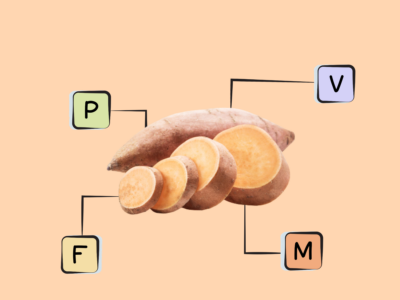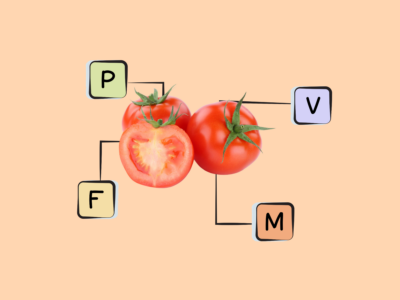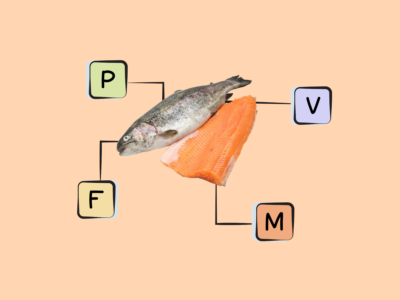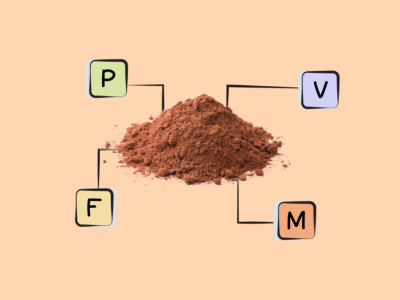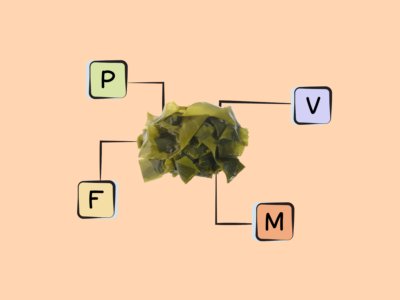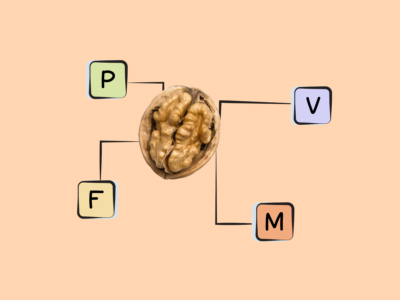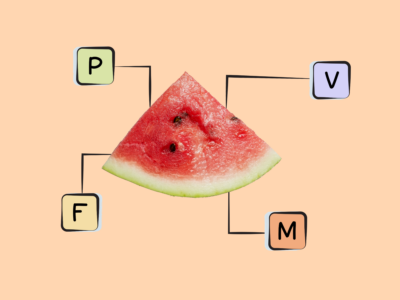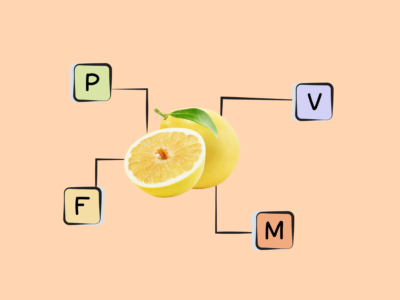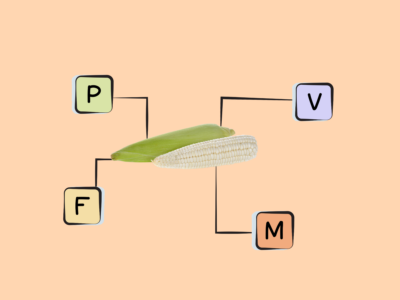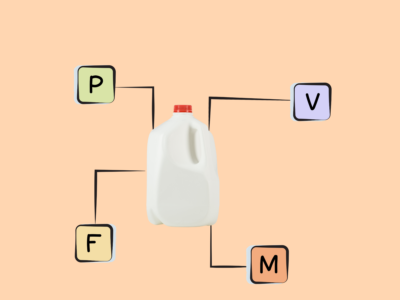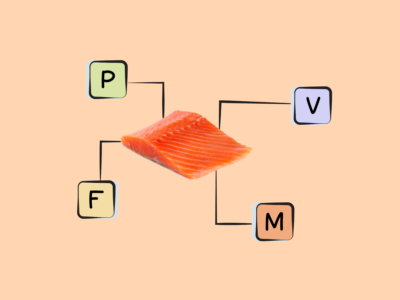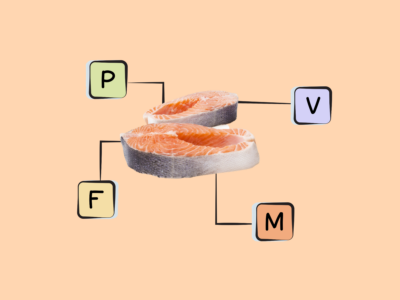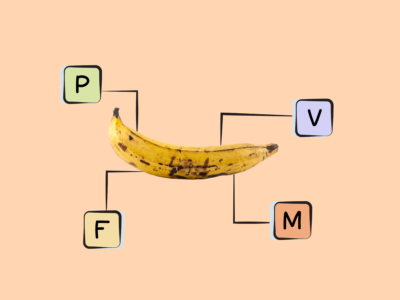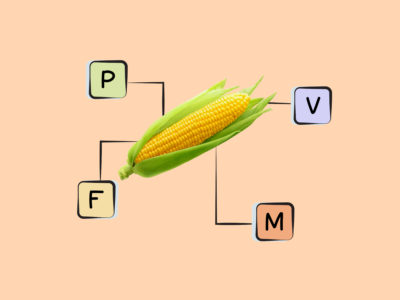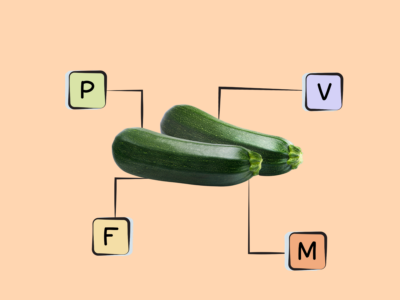Key Takeaways (expand)
- Biotin (also known as vitamin B7) is a water-soluble vitamin that naturally occurs bounds to proteins in food.
- Like other B vitamins, biotin plays an important role in energy metabolism, neurotransmitter production, cellular function, and various organ functions.
- Biotin serves as a coenzyme for five different carboxylase enzymes involved in carbohydrate digestion, fatty acid synthesis, and gluconeogenesis.
- Biotin impacts gene expression due to its role in regulating chromatin structure—that is, the way DNA is condensed and organized.
- Many of biotin’s best-researched benefits are aesthetic: it can help strengthen brittle nails, reverse thinning hair in people with low baseline biotin levels, and improve hair growth in people with medication-induced hair loss.
- This nutrient plays a particularly important role during pregnancy: not getting enough biotin can increase the risk of premature delivery, delayed fetal growth, and birth defects.
- Although more research is needed, some evidence suggests biotin can help reduce or reverse some functional symptoms of multiple sclerosis—particularly vision loss and partial limb paralysis.
- There’s also some evidence that biotin plays a protective role against diabetes, possibly due to increasing the use of glucose for fatty acid synthesis; but, more research is needed!
- High-dose biotin supplementation can interfere with laboratory tests that use biotin-streptavdin technology, including common tests for thyroid-stimulating hormone, 25-hydroxyvitamin D, b human chorionic gonadotropin (the pregnancy hormone), and some tumor markers.
- Biotin deficiency can be induced by long-term consumption of raw egg yolks, which contain a biotin-binding enzyme inhibitor called avidin.
- When biotin deficiency occurs, it causes symptoms such as full-body hair loss, brittle nails, conjunctivitis, scaly red skin rashes, ataxia, seborrheic dermatitis, ketolactic acidosis, unusual fat distribution, and neurological symptoms (including depression, numbness and tingling, hallucinations, and seizures).
- Great sources of biotin include egg yolks, liver, and yeast; some is also found in almonds, walnuts, avocado, root vegetables, and tomatoes.
Table of Contents[Hide][Show]
Biotin, also known as vitamin B7, is a water-soluble vitamin that naturally occurs bound to proteins in food. It was first discovered in 1927, when a biochemist named Vincent du Vigneaud noticed that farm animals developed deficiency symptoms when raw eggs were added to their diet (which we now know is due to raw egg whites containing avidin—a heat-sensitive protein that binds to biotin and inhibits its absorption). But, it took another 40 years before biotin was confirmed to be a vitamin! Initially, biotin was coined vitamin H, following the standard naming procedures at the time, but was later categorized as a B-complex vitamin and assigned yet another name, vitamin B7. The word biotin comes from the Greek word bios, meaning “to live.”
Like other B vitamins, biotin plays an important role in energy metabolism—breaking down the carbohydrates, fat, and protein we eat for use as fuel (hence why B-complex vitamins are often nicknamed the “energy vitamins!”), as well as neurotransmitter production, cellular function, and a wide variety of organ functions.
The richest food sources of biotin are egg yolks, liver, and yeast; this nutrient is also found in nuts such as almonds and walnuts, avocado, root vegetables (such as sweet potato), and tomatoes.
Want to know the top 25 foods for this awesome nutrient?

The Top 25 Foods for Every Nutrient
The Top 25 Foods for Every Nutrient e-book is a well-organized, easy-to-use, grocery store-friendly guide to help you choose foods that fit your needs of 43 important nutrients while creating a balanced nutrient-dense diet.
Get two “Top 25” food lists for each nutrient, plus you’ll find RDA charts for everyone, informative visuals, fun facts, serving sizes and the 58 foods that are Nutrient Super Stars!
Buy now for instant digital access.
what are The Biological Roles of Biotin?
Biotin serves as a coenzyme for five carboxylase enzymes, which have important roles in carbohydrate digestion, fatty acid synthesis, and gluconeogenesis. These enzymes are acetyl-Coenzyme A (CoA) carboxylase 1 and acetyl-CoA carboxylase 2, which produce malonyl-CoA; pyruvate carboxylase, which is needed for gluconeogenesis (the formation of glucose from non-carbohydrate sources, such as lactate, glycerol, pyruvate, and certain amino acids); methylcrotonyl-CoA carboxylase, which catalyzes an essential step in leucine catabolism; and propionyl-CoA carboxylase, which produces D-malonylmalonyl-CoA from propionyl-CoA.
Additionally, biotin is used as part of the regulation of chromatin structure (the way that DNA is condensed and organized), which impacts genetic expression. Biotin’s role in gene expression is independent of its function as a carboxylase coenzyme: it’s been shown to have a nitric oxide-like function that can activate a soluble form of the enzyme guanylate cyclase, in turn increasing intracellular concentrations of a second messenger called cyclic guanosine monophosphate (cGMP). Biotin can likewise regulate the expression of the asialoglycoprotein receptor (found in the plasma membrane of liver cells, and which mediates the removal of potentially harmful carbohydrate-linked compounds from the blood) through activating both guanylate cyclase and the cGMP-dependent protein kinase (PKG). The guanylate cyclase-PKG signal transduction pathway has also been shown to regulate the transcription of genes encoding a number of enzymes in human liver cells (including PC, PCC, SMVT, HCS, and ACC-1).
Like other B vitamins, it also plays an important role in energy metabolism—particularly the second stage of cellular respiration, called the Krebs cycle or citric acid cycle. The Krebs cycle is an incredibly important series of chemical reactions that all aerobic organisms use to generate energy, through an eight-step process taking place in a cell’s mitochondria. During this cycle, acetate (in the form of acetyl CoA) derived from carbohydrates, fat, or protein undergoes a series of redox, dehydration, hydration, and decarboxylation reactions to produce adenosine triphosphate (ATP), the energy currency for all cells—as well as the waste product carbon dioxide, and reduced forms of NADH and FADH2 (which can then be converted into yet more ATP in the last step of the Krebs cycle: oxidative phosphorylation in the electron transport chain). This is complex biochemistry, but the important part here is that there are a whole lot of chemical reactions required to produce energy for our cells, and B vitamins are essential for that process!
Biotin’s specific role in cellular respiration is by assisting in carboxylation reactions. In particular, the biotin-dependent enzyme pyruvate carboxylase is needed for transforming pyruvate to oxaloacetate, an intermediate in the Krebs cycle that reacts with acetyl CoA to form citrate (in fact, acetyl CoA can’t enter the cycle until it condenses with oxaloacetate!). Some oxaloacetate is required at all times in order for the Krebs cycle to function. So, a lot hinges on the presence of biotin to serve as a coenzyme!
How Does Biotin Interact with Other Nutrients?
Importantly, high intakes of biotin can compete with pantothenic acid for uptake, due to both of these nutrients using the sodium-dependent multivitamin transporter.
What Drugs Interact with Biotin?
Biotin is known to have several drug interactions to be aware of. Long-term use of anticonvulsants (such as carbamazepine) can increase biotin requirements, due to these drugs interfering with biotin absorption and enhancing the conversion of biotin into inactive metabolites. Long-term treatment with some antibiotics, including sulfa drugs, can also alter the amount of biotin available by reducing bacterial synthesis of biotin within the gut.
Nutrivore Is a Game-Changer—This FREE Guide Shows You Why
Sign up for the free Nutrivore Newsletter, your weekly, science-backed guide to improving health through nutrient-rich foods — without dieting harder —and get the Beginner’s Guide to Nutrivore delivered straight to your inbox!

How does Biotin affect Health and Disease?
Research shows some unique health benefits for biotin, including in the treatment or prevention of a number of medical conditions! Getting enough biotin can help support healthy nail and hair growth. It’s also particularly important during pregnancy, with low intakes increasing the risk of premature delivery and birth defects. There’s even some evidence biotin can benefit diabetics and reduce functional disabilities in people with multiple sclerosis.
Biotin and Hair and Nail Health
Interestingly, some of the benefits of biotin are aesthetic, making this vitamin popular in the beauty industry: biotin supplementation can help strengthen brittle fingernails (in trials, up to 91% of participants experienced measurably harder and firmer fingernails after taking 2.5 mg of biotin daily for multiple months), as well as improve hair growth in people with medication-induced hair loss. Biotin may also help reverse thinning hair in people with low baseline levels of biotin. However, we don’t have enough research yet to confirm whether biotin supplements can help promote healthy hair in people without an existing biotin deficiency.
Biotin and Pregnancy
Getting enough biotin is particularly important for mothers-to-be. Low levels of biotin during pregnancy have been associated with greater risk of premature delivery, growth restriction, and congenital anomalies (birth defects).
Interestingly, researchers have shown that at least one third of women become subclinically deficient in biotin during pregnancy—possibly because of the metabolic and material demand to generate so many new cells for the growing fetus (cell division requires biotin for synthesizing carboxylases and biotinylating histone)!
Biotin and Multiple Sclerosis
Although the research is currently limited, biotin may help reduce or reverse functional disabilities in people with multiple sclerosis—an autoimmune disease where the immune system attacks the myelin sheath surrounding nerves, including those in the spinal cord and brain.
In one small study, high doses of biotin (100 to 600 mg daily) led to clinical improvements in all patients who were experiencing progressive visual loss, and nearly all patients who were experiencing partial limb paralysis. Another larger study found that 13% of patients receiving 300 mg of biotin daily for 48 weeks achieved a decrease in their EDSS (expanded disability status scale) score, compared to none of the patients in the placebo group. A beneficial effect of biotin may be due to its role in fatty acid synthesis, which is required for forming myelin.
Biotin and Alzheimer’s Disease
Research in both transgenic insects and human neurons have shown that biotin depletion disrupts mitochondrial function (due to altering the expression of biotin-dependent genes), and may play a role in neurodegenerative disorders like Alzheimer’s disease. In fact, studies of patients with Alzheimer’s disease have shown that their brain levels of carboxylase biotin levels are reduced.
Biotin and Type 2 Diabetes
While the potential causality is murky, there appears to be a link between biotin and diabetes. Some studies have found that diabetics tend to have lower serum biotin concentrations than non-diabetics, and low biotin concentrations have shown up correlated with higher fasting blood sugar levels. However, in actual trials, biotin supplementation hasn’t consistently improved blood sugar among diabetics (though it does appear to lower high fasting triglycerides, suggesting a potential role in protecting against the cardiovascular complications that diabetics are at higher risk for). Biotin does have the potential to increase the utilization of glucose for fatty acid synthesis (due to it serving as a cofactor for carboxylases), as well as increase the synthesis of glycogen in the liver (due to stimulating the enzyme glucokinase); and, animal studies have found that biotin can improve glucose homeostasis by triggering insulin secretion in the pancreas.
This is another case where more research is needed to fully understand how biotin intake effects disease treatment or management!
Biotin and Genetic Disorders
Biotin can also be used to help treat several inborn metabolic disorders, including a thiamin transport disorder called biotin-responsive basal ganglia disease (which affects the nervous system, including a group of brain structures called the basal ganglia), some forms of holocarboxylase synthetase deficiency (which leads to reduced formation of biotin-dependent holocarboxylases, due to the body being unable to use normal levels of biotin effectively), and biotin transport deficiency.
Biotin and Fatigue
Some evidence suggests biotin could play a role in fatigue, with animal models showing that biotin insufficiency can provoke fatigue, and fatigue being a known symptom of biotin deficiency in humans. This is likely due to the involvement of some biotin-dependent enzymes (such as propionyl-CoA carboxylase and pyruvate carboxylase) in energy production, along with other biotin-dependent enzymes helping regulate the availability of fatty acids for oxidation and/or amino acids for the Krebs cycle. More research is needed to explore whether dietary biotin could impact fatigue outside the context of deficiency!
Biotin and Inflammation
Some research suggests a beneficial role of biotin on inflammation. For example, a 2016 study found that biotin deficiency increased the inflammatory response of dendritic cells, and a 2018 study found a similar effect of biotin deficiency in CD4+ T cells, via activation of the mTOR signaling pathway.
Didn’t know biotin was this amazing? Maybe your friends will enjoy this too!
what are the Health Effects of Biotin Deficiency?
True biotin deficiency is rare, but can be induced by long-term consumption of raw egg whites, due to the presence of an enzyme inhibitor called avidin that tightly binds to biotin and inhibits its activity. (This protein is deactivated by heat, so cooked eggs are fine; and, it isn’t present in the yolk at all!). A rare hereditary disorder called biotinidase deficiency, characterized by impaired biotin absorption and recycling, can also lead to a secondary deficiency. Smoking also increases biotin catabolism, and certain liver diseases can reduce biotinidase activity and increase the body’s requirements, potentially raising the risk of deficiency. Chronic alcohol use appears to reduce biotin levels in the blood.
When it does occur, symptoms of biotin deficiency include hair loss on all of the body (alopecia), ataxia, brittle nails, scaly red skin rash, conjunctivitis, seborrheic dermatitis (a form of eczema that effects the scalp), ketolactic acidosis, unusual facial fat distribution (sometimes called “biotin deficient facies”), and severe neurological symptoms (including depression, lethargy, hallucinations, numbness and tingling, and seizures). If biotin insufficiency occurs during pregnancy, even without the mother-to-be experiencing any overt symptoms, it can increase the risk of cleft palate, limb hypoplasia, and other skeletal abnormalities—likely due to biotin-related alterations in lipid metabolism from altered carboxylase activity.
Since humans can’t synthesize biotin on our own, we need exogenous (i.e., dietary) sources of biotin. We can absorb free-form biotin right through the cells in our intestines, or it can come along attached to proteins. In addition, our gut microbiota can synthesize large amounts of biotin—by some estimates, as much as we typically get through our diet!—though it’s unknown how much of what they generate we actually absorb and use.
Everything You Need to Jump into Nutrivore TODAY!
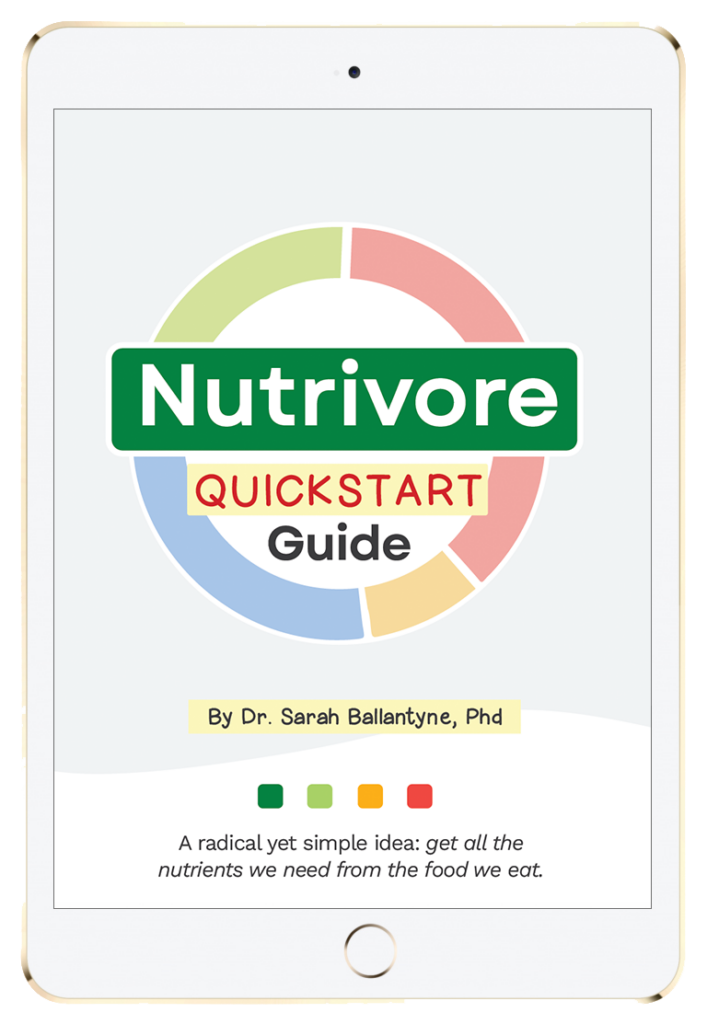
Nutrivore Quickstart Guide
The Nutrivore Quickstart Guide e-book explains why and how to eat a Nutrivore diet, introduces the Nutrivore Score, gives a comprehensive tour of the full range of essential and important nutrients!
Plus, you’ll find the Top 100 Nutrivore Score Foods, analysis of food groups, practical tips to increase the nutrient density of your diet, and look-up tables for the Nutrivore Score of over 700 foods.
Buy now for instant digital access.
what are the Problems From Too Much Biotin?
High-dose biotin supplementation has the potential to interfere with certain laboratory tests (particularly those using biotin-streptavidin technology). This includes common tests for hormone levels, including thyroid-stimulating hormone, b human chorionic gonadotropin (the pregnancy hormone), 25-hydroxyvitamin D, and certain tumor markers. In these instances, biotin supplementation (particularly at intakes of 5 mg per day or higher) can cause both falsely abnormal and falsely normal results, making it advisable to pause supplementation for at least 48 hours before the tests are administered! In fact, enough reports of biotin interference have emerged—including some life-threatening misdiagnoses—that the Food and Drug Administration had to issue a safety alert. If you’ve undergone lab work while taking high doses of biotin, be sure to tell your healthcare provider.
Although no side effects have been reported for biotin supplements up to 10 mg per day, extremely high doses can sometimes cause excessive thirst, difficulty sleeping, and stomach ache. But, because this vitamin is water-soluble, excess is excreted through the urine rather than building up to toxic levels in the body—making dietary supplements very safe.
How Much Biotin Do We Need?
There isn’t much science describing exactly how much biotin we need in our diet, so there is no recommended dietary allowance; only an adequate intake (AI) amount, which for adults is 30 micrograms per day. During pregnancy and breastfeeding, biotin requirements are likely higher than this. And, due to lack of evidence on toxicity, there’s no upper limit set for safe daily intake.
| 0 – 6 months | |||||
| 6 months to < 12 months | |||||
| 1 yr – 3 yrs | |||||
| 4 yrs – 8 yrs | |||||
| 9 yrs – 13 yrs | |||||
| 14 yrs – 18 yrs | |||||
| 19 yrs – 50 yrs | |||||
| 51+ yrs | |||||
| Pregnant (14 – 18 yrs) | |||||
| Pregnant (19 – 30 yrs) | |||||
| Pregnant (31 – 50 yrs) | |||||
| Lactating (14 – 18 yrs) | |||||
| Lactating (19 – 30 yrs) | |||||
| Lactating (31 – 50 yrs) |
Nutrient Daily Values
Nutrition requirements and recommended nutrient intake for infants, children, adolescents, adults, mature adults, and pregnant and lactating individuals.
what are the Best Food Sources of Biotin?
The following foods have high concentrations of biotin, containing at least 50% of the recommended dietary allowance per serving, making them our best food sources of this valuable B-vitamin!
Want to know the top 500 most nutrient-dense foods?
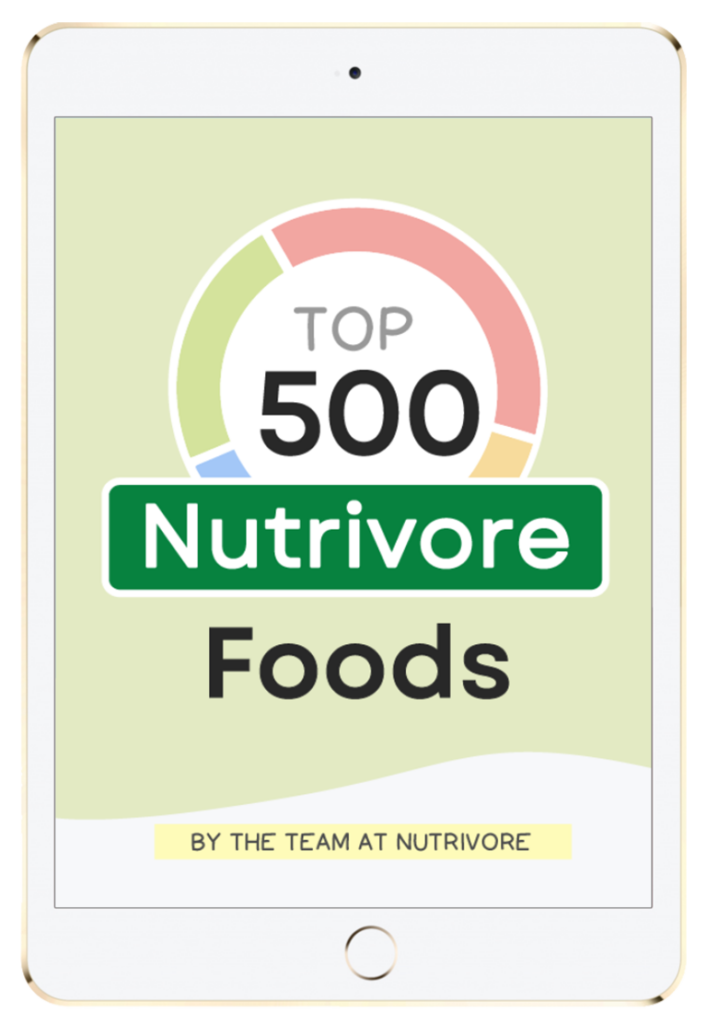
Top 500 Nutrivore Foods
The Top 500 Nutrivore Foods e-book is an amazing reference deck of the top 500 most nutrient-dense foods according to their Nutrivore Score. Think of it as the go-to resource for a super-nerd, to learn more and better understand which foods stand out, and why!
If you are looking for a quick-reference guide to help enhance your diet with nutrients, and dive into the details of your favorite foods, this book is your one-stop-shop!
Buy now for instant digital access.
what are Good Food Sources of Biotin?
The following foods are also excellent or good sources of vitamin B7 (biotin), containing at least 10% (and up to 50%) of the daily value per serving.
Ditch Diets. Embrace Nutrients. Start with this FREE Guide.
Sign up for the free Nutrivore Newsletter, your weekly, science-backed guide to improving health through nutrient-rich foods — without dieting harder —and get the Beginner’s Guide to Nutrivore delivered straight to your inbox!

Citations
Expand to see all scientific references for this article.
Agrawal S, Agrawal A, Said HM. Biotin deficiency enhances the inflammatory response of human dendritic cells. Am J Physiol Cell Physiol. 2016 Sep 1;311(3):C386-91. doi: 10.1152/ajpcell.00141.2016.
Biotin: Fact Sheet for Health Professionals. National Institutes of Health (NIH) Office of Dietary Supplements. 2022 Jan 10.
Elahi A, Sabui S, Narasappa NN, Agrawal S, Lambrecht NW, Agrawal A, Said HM. Biotin Deficiency Induces Th1- and Th17-Mediated Proinflammatory Responses in Human CD4+ T Lymphocytes via Activation of the mTOR Signaling Pathway. J Immunol. 2018 Apr 15;200(8):2563-2570. doi: 10.4049/jimmunol.1701200.
Hochman LG, Scher RK, Meyerson MS. Brittle nails: response to daily biotin supplementation. Cutis. 1993 Apr;51(4):303-5.
Ichihara Y, Suga K, Fukui M, Yonetani N, Shono M, Nakagawa R, Kagami S. Serum biotin level during pregnancy is associated with fetal growth and preterm delivery. J Med Invest. 2020;67(1.2):170-173. doi: 10.2152/jmi.67.170.
Institute of Medicine (US) Standing Committee on the Scientific Evaluation of Dietary Reference Intakes and its Panel on Folate, Other B Vitamins, and Choline. Dietary Reference Intakes for Thiamin, Riboflavin, Niacin, Vitamin B6, Folate, Vitamin B12, Pantothenic Acid, Biotin, and Choline. Washington (DC): National Academies Press (US); 1998.
Larrieta E, Vega-Monroy ML, Vital P, Aguilera A, German MS, Hafidi ME, Fernandez-Mejia C. Effects of biotin deficiency on pancreatic islet morphology, insulin sensitivity and glucose homeostasis. J Nutr Biochem. 2012 Apr;23(4):392-9. doi: 10.1016/j.jnutbio.2011.01.003.
Mock DM, Stadler DD, Stratton SL, Mock NI. Biotin status assessed longitudinally in pregnant women. J Nutr. 1997 May;127(5):710-6. doi: 10.1093/jn/127.5.710
Osada K, Komai M, Sugiyama K, Urayama N, Furukawa Y. Experimental study of fatigue provoked by biotin deficiency in mice. Int J Vitam Nutr Res. 2004 Sep;74(5):334-40. doi: 10.1024/0300-9831.74.5.334.
Patel DP, Swink SM, Castelo-Soccio L. A Review of the Use of Biotin for Hair Loss. Skin Appendage Disord. 2017 Aug;3(3):166-169. doi: 10.1159/000462981.
Piraccini BM, Berardesca E, Fabbrocini G, Micali G, Tosti A. Biotin: overview of the treatment of diseases of cutaneous appendages and of hyperseborrhea. G Ital Dermatol Venereol. 2019 Oct;154(5):557-566. doi: 10.23736/S0392-0488.19.06434-4.
Revilla-Monsalve C, Zendejas-Ruiz I, Islas-Andrade S, Báez-Saldaña A, Palomino-Garibay MA, Hernández-Quiróz PM, Fernandez-Mejia C. Biotin supplementation reduces plasma triacylglycerol and VLDL in type 2 diabetic patients and in nondiabetic subjects with hypertriglyceridemia. Biomed Pharmacother. 2006 May;60(4):182-5. doi: 10.1016/j.biopha.2006.03.005.
Rosner I, Rogers E, Maddrey A, Goldberg DM. Clinically Significant Lab Errors due to Vitamin B7 (Biotin) Supplementation: A Case Report Following a Recent FDA Warning. Cureus. 2019 Aug 23;11(8):e5470. doi: 10.7759/cureus.5470.
Saggerson D. Malonyl-CoA, a key signaling molecule in mammalian cells. Annu Rev Nutr. 2008;28:253-72. doi: 10.1146/annurev.nutr.28.061807.155434.
Sedel F, Bernard D, Mock DM, Tourbah A. Targeting demyelination and virtual hypoxia with high-dose biotin as a treatment for progressive multiple sclerosis. Neuropharmacology. 2016 Nov;110(Pt B):644-653. doi: 10.1016/j.neuropharm.2015.08.028.
Sedel F, Papeix C, Bellanger A, Touitou V, Lebrun-Frenay C, Galanaud D, Gout O, Lyon-Caen O, Tourbah A. High doses of biotin in chronic progressive multiple sclerosis: a pilot study. Mult Scler Relat Disord. 2015 Mar;4(2):159-69. doi: 10.1016/j.msard.2015.01.005.
Singer GM, Geohas J. The effect of chromium picolinate and biotin supplementation on glycemic control in poorly controlled patients with type 2 diabetes mellitus: a placebo-controlled, double-blinded, randomized trial. Diabetes Technol Ther. 2006 Dec;8(6):636-43. doi: 10.1089/dia.2006.8.636.
Staggs CG, Sealey WM, McCabe BJ, Teague AM, Mock DM. Determination of the biotin content of select foods using accurate and sensitive HPLC/avidin binding. J Food Compost Anal. 2004 Dec;17(6):767-776. doi: 10.1016/j.jfca.2003.09.015.
Tardy AL, Pouteau E, Marquez D, Yilmaz C, Scholey A. Vitamins and Minerals for Energy, Fatigue and Cognition: A Narrative Review of the Biochemical and Clinical Evidence. Nutrients. 2020 Jan 16;12(1):228. doi: 10.3390/nu12010228.
Zempleni J, Hassan YI, Wijeratne SS. Biotin and biotinidase deficiency. Expert Rev Endocrinol Metab. 2008 Nov 1;3(6):715-724. doi: 10.1586/17446651.3.6.715.
Zempleni J, Teixeira DC, Kuroishi T, Cordonier EL, Baier S. Biotin requirements for DNA damage prevention. Mutat Res. 2012 May 1;733(1-2):58-60. doi: 10.1016/j.mrfmmm.2011.08.001.



